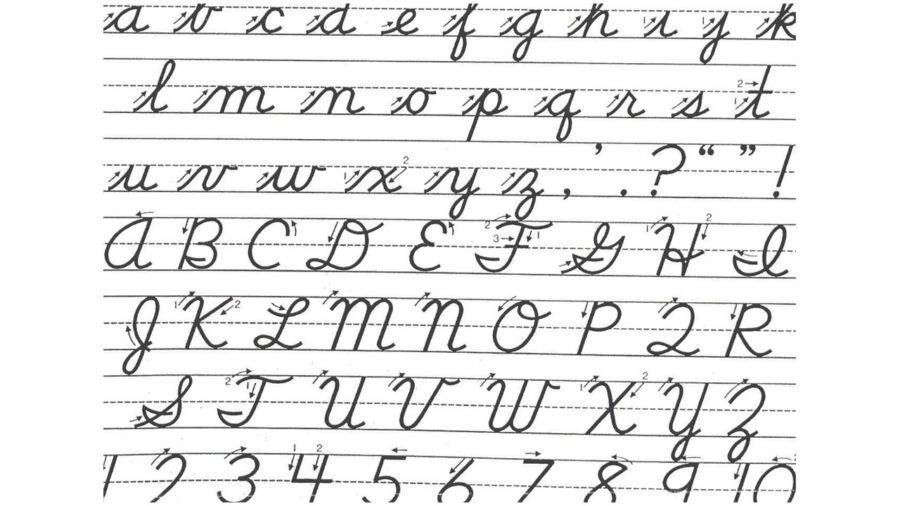On Feb.8, the Miss. Senate passed bill SB2273, which would require cursive writing to be included in the elementary curriculum.
Students are expected to “create readable documents by the end of fifth grade” and, if their school district allows, pass a proficiency test in reading and writing cursive.
If the bill is made law, it will go into effect during the 2017-2018 school year.
Republican state senator for Olive Branch and also the proposer of the bill David Parker said in a Facebook post that the purpose of the bill is for young students to be able to read historical documents.
“As the father of college children, a high schooler and a kindergartener, I am excited that the form of English used in our original founding documents will not appear to be a foreign language to the children in Mississippi,” Parker said.
After reading the Facebook comments filled with happy grandmothers, retired teachers and parents, my initial reaction was one of indifference. However, as I kept reading, I realized that maybe I did not care about the bill because I had already learned how to read and write in cursive.
During my fourth grade English class, I can remember learning it and being fascinated by cursive writing. My English teacher never referenced historical documents being written in cursive or introduced cursive like it was a foreign language. I remember it being taught as a way to distinguish yourself from others with your signature. Perfecting one’s signature could be called an art form and a way of expressing one’s self.
And maybe that is what made learning cursive so fun for my classmates and me. I wonder that if my teacher had introduced it as a way of interpreting old documents that it may have felt like a burden, and I would have possibly rebelled against using it in my free time.
Furthermore, I find the argument of teaching cursive to be able to read old documents, particularly those pertaining to American history, weak. These days, children are not handed the originals; their history books offer printed “translations.” Documents like the Constitution are available in print online and are even pocketed. Print writing is simply easier to read, and technology only perpetuates that idea.
A slightly better argument for cursive writing in school would be the psychological benefits that come from learning it. However, those benefits are hard to quantify.
Those in favor of cursive have said that it increases writing speed and helps children with dyslexia.
In an article by London writer Phillip Ball, Ball notes the lack of evidence for these claims. Beginning by saying that “Tests on writing speed have been fairly inconclusive in the past,” and goes on to cite a 2013 study.
University of Toulouse in France teacher Florence Bara and University of Sherbrooke in Canada teacher Marie-France Morin compared the writing speeds of their students. Cursive writing is strictly enforced in France while Canadian teachers allow their students to pick their handwriting style.
In the end, cursive writing was actually slower. A mixture of print and cursive handwriting was actually the fastest and most legible.
Regarding dyslexia, there may be some evidence that cursive writing helps. Karin Harman James, an associate professor in the Department of Psychological and Brain Sciences at Indiana University said, “Some children who have trouble printing letters do benefit from learning cursive because they do not have to take their pencil off of the paper as much,” James said.
James continued to say, “These children are the exception, and the results cannot be generalized to all children learning to write.”
In a response to James, Ball said that manuscript has a hidden advantage.
“Some recent studies suggest that freeing up cognitive resources that are otherwise devoted to the challenge of simply making the more elaborate cursive forms on paper will leave children more articulate and accurate in what they write,” Ball said.
But no one ever brings these arguments when advocating for cursive to be taught in school – most arguments for cursive writing are selfish, centered around being able to read family letters from the past if not popular historical documents.
Cursive writing has become tradition, but I am not sure if it is worth being advocated for in Mississippi legislature, especially when our world is more technologically-savvy than ever. Today, children need cursive to sign documents, but nothing more.





























